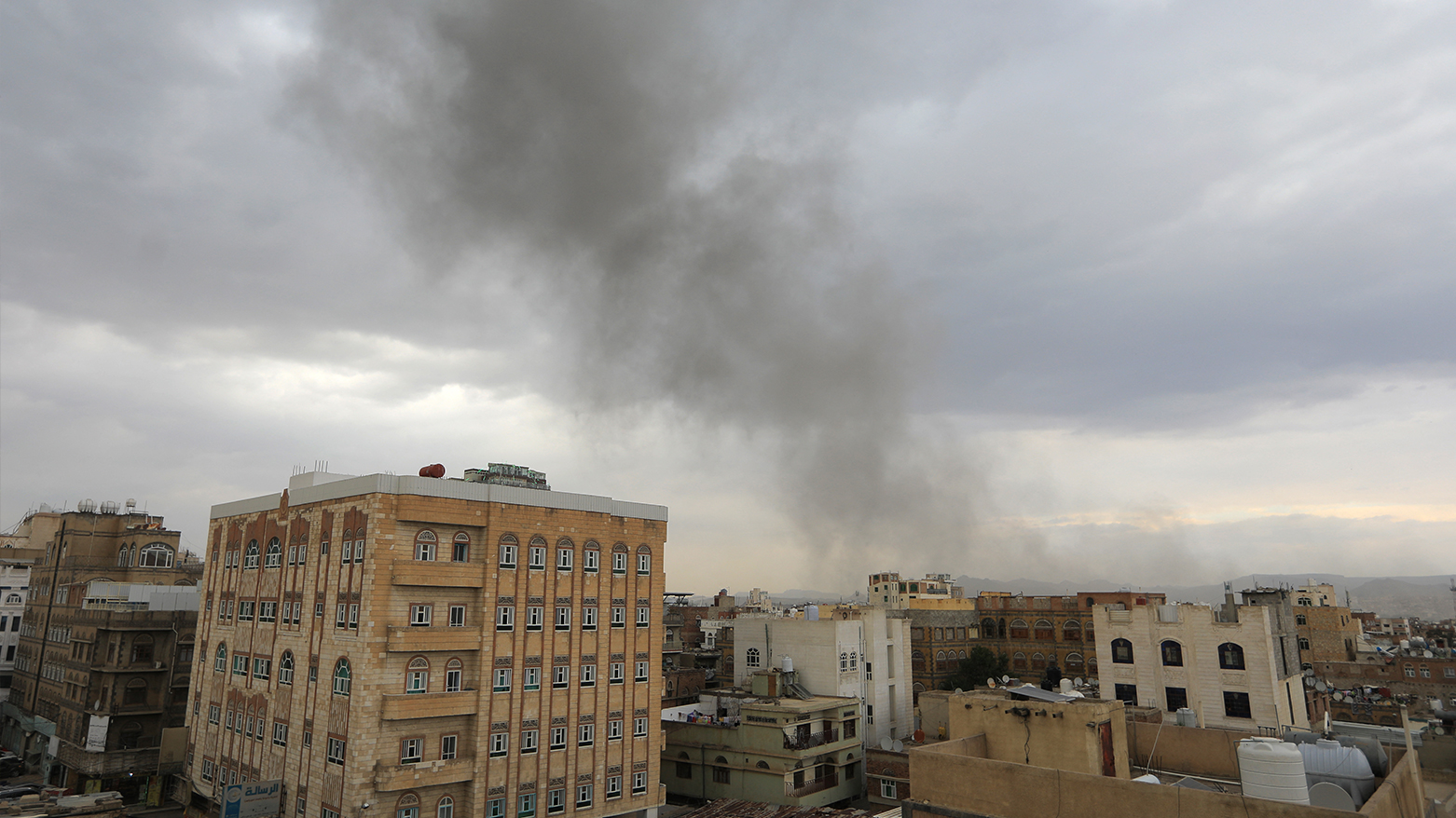Israel says struck Huthi 'military targets' in Yemen
Israel strikes Houthi military targets in Yemen, hitting camps and facilities in Sanaa and Al-Jawf. The IDF says it's a response to repeated Houthi attacks on Israel. The move expands Israel's multi-front escalation after recent strikes in Qatar, Syria, Lebanon, and Gaza.

ERBIL (Kurdistan24) – Israel’s military announced on Wednesday that its warplanes struck sites belonging to Yemen’s Houthi movement, marking the latest front in a sweeping escalation that in the past 24 hours has already seen Israeli strikes reach into Qatar, Syria, Lebanon, and Gaza.
At least 35 people were killed and more than 100 wounded in Israeli strikes on Yemen's capital Sanaa and Jawf province on Wednesday, the rebels said in a statement.
"The death toll has reached nine martyrs and 118 wounded in a preliminary tally as civil defence, ambulances and rescue teams are still searching for the missing," Huthi health ministry spokesman Anees Alasbahi posted on X.
According to the Israel Defense Forces (IDF), the strikes targeted military camps, a fuel storage facility, and the Houthis’ public relations headquarters in the capital Sanaa and in Al-Jawf province.
“A short while ago, the IAF struck military targets belonging to the Houthi terrorist regime in the areas of Sanaa and Al-Jawf in Yemen,” the military said in a statement, adding that operatives had been identified at the targeted camps.
An AFP reporter in Sanaa confirmed that explosions hit a building used by the Houthi armed forces.
In a statement posted on its official X account, the Israeli military said the raids were a direct response to repeated Houthi attacks on Israel, including the launch of drones and surface-to-surface missiles.
“Among the targets struck: military camps in which the Houthi regime gathered intelligence and planned terrorist attacks; a fuel storage facility used in Houthi operations; and the Houthi Public Relations Department, responsible for propaganda and psychological terror,” the IDF declared.
⭕️The IDF struck military targets belonging to the Houthi terrorist regime in the areas of Sanaa and Al Jawf in Yemen.
— Israel Defense Forces (@IDF) September 10, 2025
Among the targets struck:
• Military camps in which the Houthi regime gathered intelligence, and planned & executed terrorist attacks against Israel.
• A…
Israel accused the Iran-backed movement of orchestrating attacks on its territory, stressing that the strikes were designed to degrade the Houthis’ operational capacity.
The Yemen strikes come less than 24 hours after Israel launched an unprecedented series of attacks on multiple regional fronts, in what observers describe as one of the most dangerous escalations since the war began.
On Tuesday, powerful explosions shook Doha, where the IDF confirmed it had carried out a “precise strike” targeting Hamas’s senior political leadership. The attack marked the first time Israel has extended its war into Qatar, a Gulf state long considered a crucial mediator in ceasefire and hostage negotiations.
Prime Minister Benjamin Netanyahu insisted the operation was “wholly independent” and conducted under Israel’s sole authority. The Qatari government, however, issued a strong condemnation, calling the strike a “criminal assault” and a “blatant violation of sovereignty.”
Saudi Arabia, Iraq, Kuwait, the United Arab Emirates, the Palestinian Authority, and the United Nations joined in sharp rebukes, warning of grave consequences for regional stability.
Just hours before the Doha strike, Israeli warplanes hit sites in Syria near Latakia, Homs, and Palmyra. State media in Damascus reported explosions at a Syrian Air Force installation southeast of Homs, while the Syrian Foreign Ministry condemned the strikes as “a flagrant violation of sovereignty and international law.”
In Lebanon, an Israeli drone strike south of Beirut targeted a vehicle near the town of Jiyyeh, injuring a Hezbollah member. The attack followed a wave of Israeli raids in eastern Lebanon the previous day that killed at least five people.
At the same time, Israel intensified preparations for a ground assault on Gaza City. Military spokesman Avichay Adraee issued an evacuation order to residents, urging them to flee south toward the designated Al-Mawasi “humanitarian zone.”
“The IDF is determined to dismantle Hamas and will operate in Gaza City with great force,” Adraee wrote on X.
Netanyahu said Israeli forces had destroyed 50 residential towers in Gaza over the past two days, calling the bombardment “a prelude” to a wider offensive. Defense Minister Israel Katz pledged that the country would continue until Hamas’s leadership is eliminated.
In a joint statement, Netanyahu and Katz reiterated that Hamas was responsible for the October 7 massacre and accused the group of ongoing deadly attacks against Israeli citizens.
The strikes on Yemen highlight the expanding scope of Israel’s military campaign, drawing in actors far beyond Gaza. The Houthis, aligned with Iran, have repeatedly declared their readiness to target Israel, adding another volatile dimension to the conflict.
The sudden decision to hit targets in Qatar, Syria, Lebanon, Gaza, and Yemen within a single 24-hour period has alarmed regional and international observers.
Diplomatic condemnation has poured in, but with fighting intensifying across multiple arenas, questions now loom over whether this escalation will ignite a wider regional war—or force international actors to push harder for renewed diplomacy.
Updated in Sep. 10, 2025, at 9:10 PM.